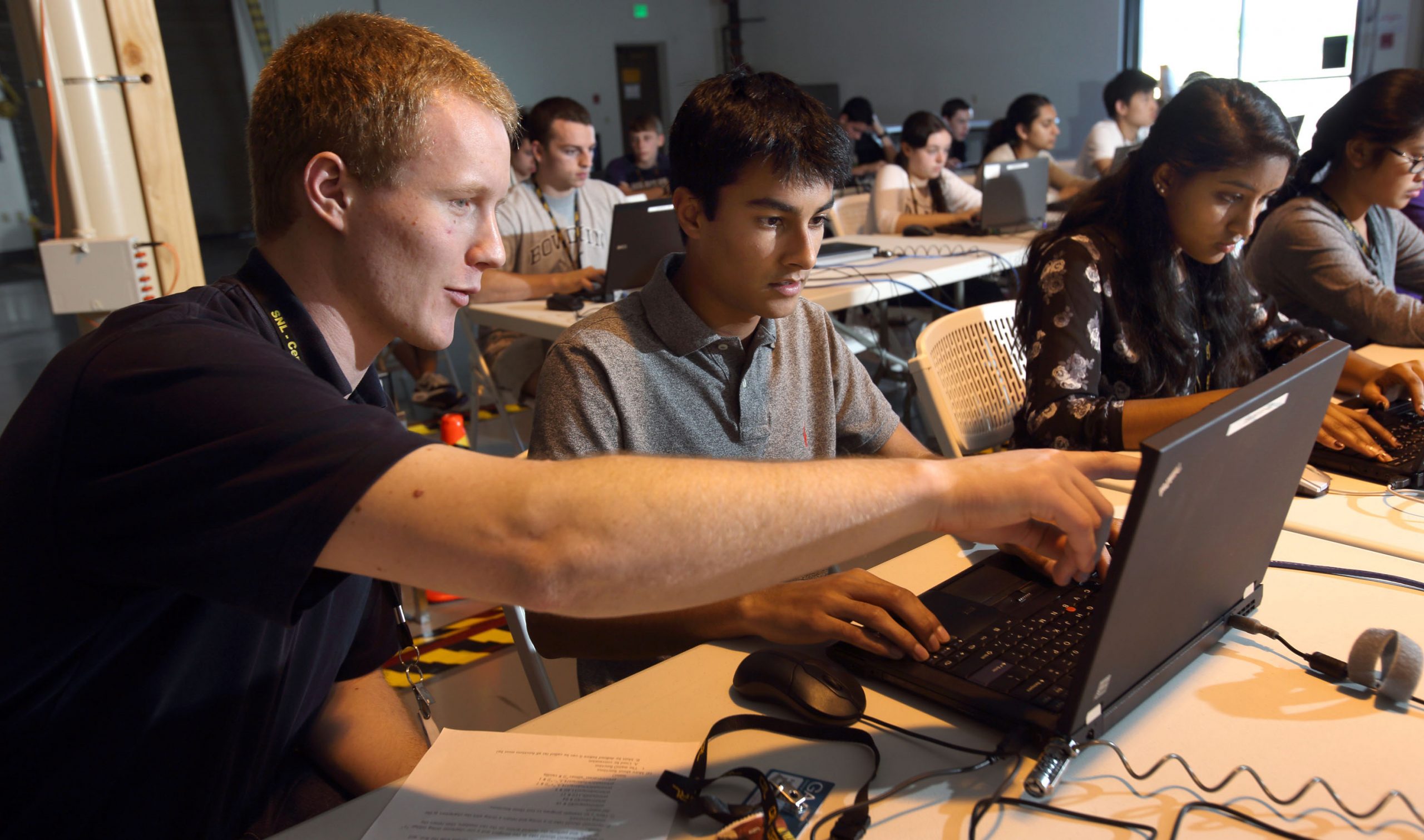LIVERMORE, Calif. — In the rapidly changing world of cybersecurity, who better to learn from than the professionals who live in that world every day? High school students are getting just that opportunity through Sandia National Laboratories’ Cyber Technologies Academy, free classes for high school students interested in computer science and cybersecurity.

“The Cyber Technologies Academy is a critical piece of our talent pipeline strategy for cyber professionals,” said Navid Jam, manager of the information assurance department in Sandia’s Computer Sciences and Information Systems Center. “The sooner we can engage with students and shape their thinking about computer security and the hard problems we and the nation face, the sooner they can be part of the solution. These students will amplify our national security impact and develop a desperately needed national cyber capacity.”
Cybersecurity engineers Jeremy Erickson and Steve Hurd started the academy after running the Center for Cyber Defenders (CCD) at Sandia’s California site, a summer internship for students from high school through doctoral studies.
The goal of the Cyber Technologies Academy is to take motivated students — even those with no computer experience — to a high level of cyber proficiency during high school. The classes combine instruction with hands-on learning, giving students an actual cyber environment in which to network and program.
Academy fills critical education gap
“We noticed that high school students entering the CCD had vastly different levels of skills and experience,” Erickson explained. “High schools are not well-equipped to teach cybersecurity. Most schools only offer basic computer science classes. It’s rare to find a high school teacher with a computer science background, and high school computer labs typically aren’t set up to run multiple operating systems and allow students to experience networking.”
The program is taught in Sandia’s Cybersecurity Technologies Research Laboratory, which houses the CCD in the summer on the Livermore Valley Open Campus.
The first session of classes began in March. The organizers planned for 54 students in three classes of 18, but quickly added a fourth session after 69 students applied.
“I wanted to learn networking, which wasn’t taught in my high school computer science classes,” said Kimberli Zhong, a senior at Dublin High School in Dublin, Calif. “The class is interesting, especially the hands-on exercises. We can put the concepts we learn into practice immediately.”
Nikhil Singh, a sophomore at Foothill High School in Pleasanton, Calif., signed up for the academy because he’s interested in a career in cyberintelligence. “I’m taking computer science classes at my high school, but here we get to program in a ‘real-deal’ environment,” he said. “It’s been a real eye opener to learn about other career paths in computer science.”
Extending the academy’s reach to teachers
The academy team is now preparing to launch a summer session — five weeks of classes that will meet for four hours a week for students and two weeklong intensive sessions for teachers. The team expects more than 200 students to apply for the 108 seats available in the summer.
“Clearly, there is a limit to the number of students we can reach directly,” said Erickson. “So we are offering teacher training and developing curriculum so those teachers can bring this instruction back to their schools.”
That includes building the classroom exercises into a live CD, essentially an operating system on a disk. Once complete, the system will be available free-of-charge to schools. “This gets schools over the technology hurdle because with a live CD there is no need to install anything on a school computer, but students can still do cyber exercises in an authentic environment,” said Erickson.
Instructors are paid from Sandia corporate community funds that support educational outreach. The academy is seeking federal and private grants and partnerships to support further curriculum development.
The academy will begin taking applications for the summer program in mid-May. The application and other details can be found at the CTA website. Selection is based on student motivation.
“We don’t require any experience or prior knowledge in cyber,” Erickson said. “We are looking for students with a passion for this subject, who have the potential to become the best and brightest in the field.”
